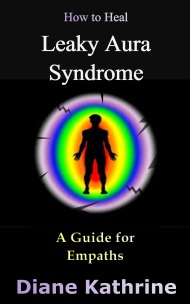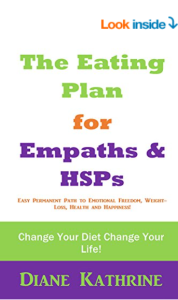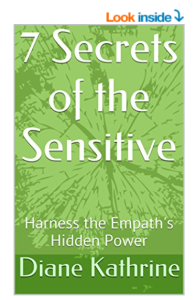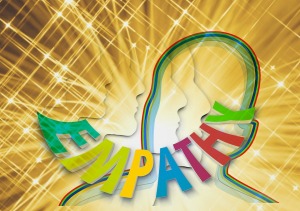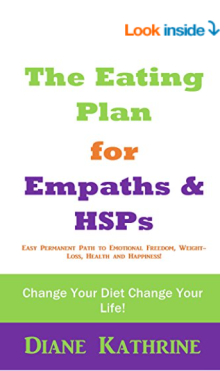
If you are an Empath, chances are you will carry many introvert tendencies, even if you consider yourself to be extrovert.
The fact is introversion is something that tends to go hand-in-hand with life as a Sensitive. Even if one started life exhibiting more extrovert ways, the way the world makes an Empath ‘feel’ can trigger or build introvert tendencies such as: a regular need for solitude, not enjoying spending time around people, experiencing social anxiety when around crowds, etc.
 Being an introvert in this extrovert-driven world can bring many challenges and hurdles to overcome. So much so, it can leave many Empaths completely out of place and lost. It’s as though they’ve been dumped into a reality that is not a fit, and one has to live a lie just to show up in society.
Being an introvert in this extrovert-driven world can bring many challenges and hurdles to overcome. So much so, it can leave many Empaths completely out of place and lost. It’s as though they’ve been dumped into a reality that is not a fit, and one has to live a lie just to show up in society.
However, when you come to accept and understand ‘your ways’ and the unique ways of being an introvert Empath, life not only makes more sense but you recognise it’s ok to be who you are. You no longer feel you have to change your behaviour in order to ‘fit in’.
Below is an interesting post, written by Gregg Prescott, of in5d.com, that throws more light on some of the interesting ways of an introvert: (Copyright in5d and Gregg Prescott, M.S.. The following content may be freely reproduced in full or in part in digital form.)
Why do introverts tend to be highly spiritual?
Society dictates that we follow specific images projected by the main stream media, so why do introverts tend to rebel from these stereotypes?
Introverts tend to look within for answers versus having the need for societal approval. Often, extroverts will view the introvert as being antisocial, stuck up or as loners, but even with these labels, the introvert will stand his or her ground with complete disregard for how others perceive him or her.
If you are an introvert, then you will find complete comfort in solitude. You often find yourself immersed in deep thought and contemplation. Your need for approval by others is significantly less than the extrovert as you realize that all answers come from within.
While you may partake on social occasions, you often enjoy simply watching the environment around you versus being the center of attention, which many introverts try to avoid. On a metaphysical level, the introvert realizes how we are all connected and does not need the external approval and attention that is often sought after by the extrovert.
Approximately 75% of the world are extroverts, which makes the introvert the minority, yet the introvert will not succumb to societal pressure in order to conform.
While some introverts may be shy, there is a big difference between shyness and being introverted. Shyness is a facet of social anxiety and the fear of rejection while being introverted is the ability to be at social function without the need for complete social interaction. For example, if the introvert was at a party, he or she can easily have conversations with many people, but often chooses not to.
The introvert can have extroverted tendencies while still remaining to be an introvert. Many introverts will pick and choose the time and place to be extroverted, such as waiting in line at the grocery store. In this situation, the conversation is limited and there is no long term commitment to continue the conversation, allowing the introvert to have social interaction without being forced into it. Within minutes, the introvert will once again find the tranquility of being the observer.
Within the solitude, the introvert finds much time to reflect on life. He or she will have a small group of close friends and will feel comfortable being themselves around these people.
The extrovert will feel uncomfortable when there is a small break in the conversation while the introvert understands that sometimes words do not need to be spoken to appreciate the company of the person they’re with. A hug and a smile speak louder than words for the introvert.
The introvert is amused by the extrovert and will observe their mannerisms. An introvert will tend to be on the outside of a group, looking within.
Introverts prefer to watch, listen and observe and don’t talk very much but when they’re with people they feel close to, they will openly talk about things that they’re passionate about.
Many people within the spiritual and metaphysical genres are introverts and often look within for answers. They are more apt to understand the principle of oneness and how we are all connected on a deeper level than the extrovert, who looks for physical approval.
Introverts tend to use the right side of their brain and often are often musically or artistically inclined. They may also be poets or philosophers and can easily see outside the box.
The introvert will question the origins of what society has told us to be the truth and unlike a scientist, he or she does not need empirical data to maintain his or her own beliefs. The metaphysical fields often attract the introvert because of this.
Inner reflection is commonly used by the introvert as he or she will look within for answers versus what he or she may have been taught. The introvert will use discernment as he or she weighs what has been learned externally versus what he or she feels resonates as the truth within.
Introverts are often Empaths as well. Their sensitivity to how other people feel tends to be heightened as opposed to the extrovert who is more consumed with how others are perceiving himself or herself.
Extroverts may also be highly spiritual and will display their spirituality more openly than the introvert. They are easily able to talk to anyone about spiritual and metaphysical topics while the introvert will pick and choose who he or she will talk to about these issues.
The bottom line: despite being only 25% of the population, the introvert will rarely change their attitude or personality to appease others, with the exception of their employment. Many introverts have learned how to be “temporary extroverts” but in the end, their comfort zone brings them back to be an introvert. While society will continue to make the introvert feel like an outcast, the introvert will not be persuaded by peer pressure or conformity in order to appease others because he or she already knows that the truth is within. 
Find Out if You are an Introvert Empath
If you are looking for simple ways to transform your life as an Empath or just ways to stay in control of how you feel, click here or on the image opposite.





